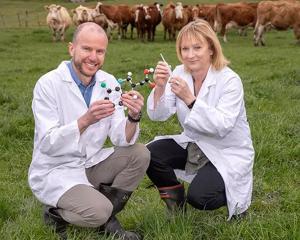A $36million grant will ensure the University of Otago helps lead and co-ordinate infectious disease research.
The Ministry of Business, Innovation and Employment yesterday announced the Institute of Environmental Science and Research (ESR) and the university will lead the development of an "infectious diseases research platform".
It will support the development of capability and technology to help New Zealand’s fight against Covid-19 and other infectious disease outbreaks and pandemics.
University deputy research and enterprise vice-chancellor Prof Richard Blaikie described the university’s involvement as "a huge privilege".
"We haven’t had a connected and co-ordinated infectious disease investment in New Zealand before, so it’s demonstrating that Otago has strong, strong, strong capabilities in this area."
There were 25 university staff currently in formal roles on government advisory boards, and infectious disease research was a strength for the university, he said.
The platform funding essentially meant there was a responsibility to get research right around New Zealand connected, and to collectively select the most pressing research areas to prioritise, he said.
ESR chief executive Peter Lennox said it would engage communities and researchers nationwide, and leverage international networks in the pursuit of research excellence, equity of health outcomes, equity of opportunity, and upholding the Treaty of Waitangi and its obligations.
The research funding is set down for three years.
Announcing the funding in September, Associate Minister of Research, Science and Innovation Dr Ayesha Verrall said the lack of a dedicated infectious disease research fund had been a longstanding gap in New Zealand’s domestic science capabilities.
"The first priority area is improving prevention and control, including through better understanding of disease transmission, and further vaccine research," Dr Verrall said.
"The second is in improving our management of infectious diseases, for instance through diagnostics, surveillance and therapeutics.
"Reducing the impact of infectious diseases on Maori and Pacific people and promoting the development of our next generation of pandemic scientists are key drivers of this work."












